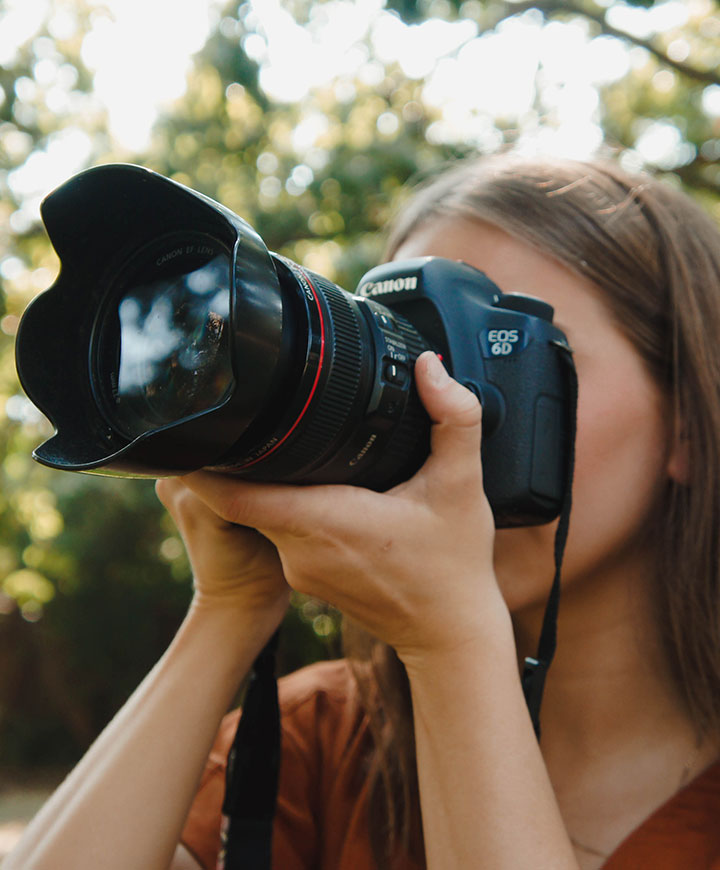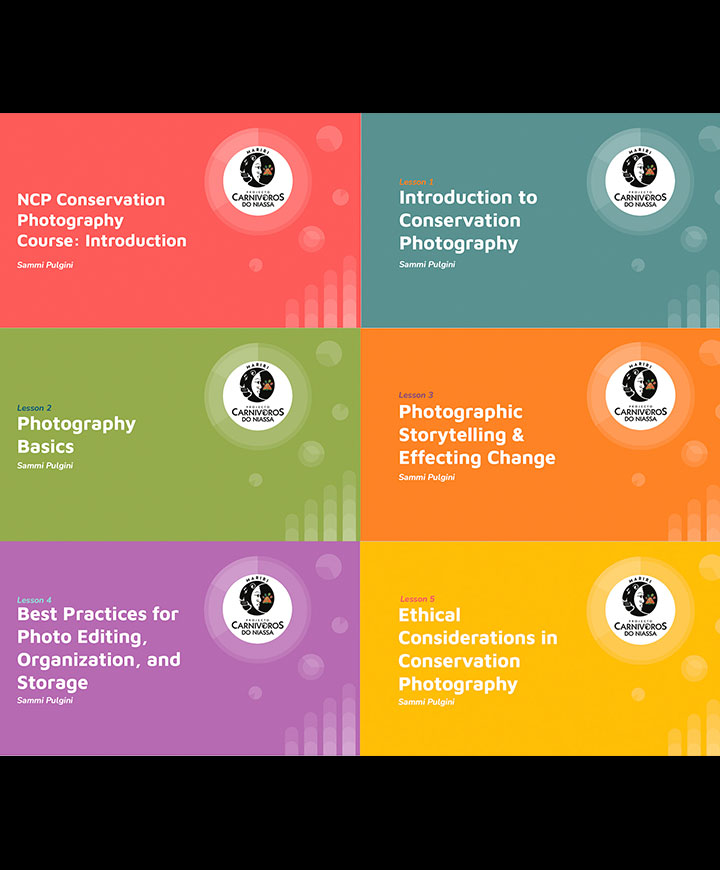Samantha Pulgini - Mozambique
As I planned for the summer of 2021, my intent had been to travel to Mozambique and partner with the Niassa Carnivore Project—a large carnivore conservation initiative based in Niassa Special Reserve. Through targeted research, community engagement, and direct threat mitigation, NCP aims to conserve African lions and other threatened species by promoting coexistence in the NSR, where human-carnivore conflict has contributed significantly to shrinking wildlife populations. Beyond implementing these sustainable solutions, NCP founders Dr. Colleen Begg and Keith Begg also strive to educate their team of fellow conservationists in skills essential to the continued success of NCP. Through my proposed project, this effort would be expanded to include a training course in conservation photography.
As COVID-related restrictions continued into the spring, my mentors and I made the decision to postpone travel and focus on remotely completing a component of the project we had hoped to execute in Mozambique. Acknowledging the benefits of a remote approach, we viewed these unique circumstances as an opportunity to invest time and effort into developing well-informed teaching materials, which will eventually be put to action during a future trip to the NSR.
Centered around the development of a conservation photography course and training program, the aim of this ongoing project is to educate NCP team members on technical and creative photography skills as well as the role of visual storytelling in advancing conservation initiatives. While meeting in person was not an option, my mentors and I worked together remotely during the months of June and July in order to execute this project, frequently touching base over Zoom to exchange ideas. During this time, I was given the creative freedom to develop this integrative curriculum from the ground up, allowing me to put my knowledge of photography to action, explore approaches to effective teaching, as well as further educate myself on the intersection of biodiversity loss and human-carnivore conflict in Mozambique. The curriculum features 5 instructional lessons, which introduce conservation photography through exploring the following topics: technical and creative photography techniques, photo editing and organization practices, approaches to effective photographic storytelling, and ethical considerations in conservation photography. Beyond contributing to the capacity-building efforts of NCP, the process of training team members in visual storytelling is also expected to elevate the awareness, support, and success of large carnivore conservation efforts moving into the future.
While I was disappointed to not visit Mozambique, the knowledge, skills, and materials I developed throughout this past summer have prepared me for a future trip to the NSR, where I intend to implement the remainder of the project and lead the conservation photography course in person. Beyond expanding my knowledge on critically important conservation issues, this summer has served as an invaluable opportunity to collaborate with experienced mentors, whose careers as accomplished photographers, videographers, and scientists both resemble and inspire the career I hope to create for myself in the future. In an increasingly digital world, photography serves as a widely accessible, universally understood medium to empower conservation. Through creating thoughtfully composed images, conservationists, scientists, and photographers have the power to tell compelling stories and make a tangible impact on conservation awareness and initiatives around the globe.



